
2ND CIR. URGED TO RULE TITLE VII BANS SEX ORIENTATION BIAS
By Kevin McGowan
June 30 — More than a hundred congressional Democrats joined the EEOC and civil rights and gay rights advocates in urging the Second Circuit to rule that Title VII of the 1964 Civil Rights Act prohibits bias based on sexual orientation ( Christiansen v. Omnicom Grp., Inc., 2d Cir., No. 16-748, amicus briefs filed 6/28/16 ).
No federal appeals court has ruled that Title VII covers bias based on sexual orientation, but that view now is being challenged in a number of pending cases. Some advocates expect that the U.S. Supreme Court ultimately will have to decide the issue.
In an amicus brief filed June 28 in the U.S. Court of Appeals for the Second Circuit, 128 House and Senate Democrats said the court should scrap as “outdated” its precedent holding that Title VII doesn’t reach sexual orientation.
The appeals court instead should rule that Title VII’s ban on sex discrimination covers bias based on sexual orientation, the lawmakers said in their brief supporting a gay employee’s claims against Omnicom Group Inc.
The Equal Employment Opportunity Commission in January filed amicus briefs in two Eleventh Circuit cases contending that sexual orientation bias is inherently sex discrimination under Title VII.
The agency reiterated that argument in its Second Circuit amicus brief for Omnicom employee Matthew Christiansen.
Already Covered by Title VII
The lawmakers signing the Democrats’ brief all are co-sponsors of the Equality Act (H.R. 3185/S. 1858), which would explicitly prohibit employment bias based on sexual orientation or gender identity. The proposed legislation doesn’t mean that Title VII’s sex discrimination ban doesn’t already cover lesbian, gay, bisexual and transgender workers, the Democrats said.
The Equality Act “uses a ‘belt-and-suspenders’ approach to reflect what the Act’s co-sponsors and various federal regulatory and judicial bodies recognize: LGBT Americans are already protected against discrimination on the basis of sexual orientation and gender identity under Title VII of the 1964 Civil Rights Act because sexual orientation and gender identity are inherently aspects of a person’s ‘sex,’ ” the Democrats said in their brief.
The courts’ differing interpretations of Title VII “have led to uncertainty in the workplace and left LGBT Americans inconsistently protected from workplace harassment and discrimination, despite applicable federal law,” the Democrats said.
“We firmly believe that Title VII’s sex discrimination provision already prohibits discrimination based on an individual’s sexual orientation and gender identity, and we urge the court to overrule erroneous Second Circuit precedent to the contrary,” the lawmakers said.
Lower Court Had Urged Review
A federal district court in March had dismissed Christiansen’s Title VII sex discrimination and harassment claims, citing the Second Circuit’s decision in Simonton v. Runyon, 232 F.3d 33, 83 FEP Cases 993 (2d Cir. 2000).
But in dismissing Christiansen’s case, Judge Katherine Polk Failla also said the Second Circuit should reconsider Simonton, which held Title VII doesn’t prohibit bias based on sexual orientation.
Failla said that given the EEOC’s July 2015 administrative decision holding that Title VII bans sexual orientation discrimination in federal employment and the difficulty of distinguishing between prohibited bias based on “sexual stereotyping” and sexual orientation bias, it might be time to revisit the meaning of Title VII’s sex discrimination ban.
Same-Sex Marriage Ruling Cited
In his Second Circuit brief, Christiansen said the court’s Title VII precedent can’t be reconciled with the U.S. Supreme Court’s 2015 decision that same-sex couples have a constitutional right to marry.
The Supreme Court decision is “meaningless” if the “tens of thousands of same-sex couples” within the Second Circuit are “placed in the most untenable position known as ‘married on Sunday, fired on Monday,’ ” Christiansen said.
The reasoning underlying Simonton has eroded over the years, as decisions on which the Second Circuit relied have been undercut by subsequent rulings, Christiansen said.
Title VII’s sex discrimination ban never was meant to exclude LGBT workers, and the appeals court should restore the proper understanding of the act’s broad protection against sex bias, Christiansen said.
EEOC Weighs In
Meanwhile, the EEOC in its brief said bias based on sexual orientation is “cognizable” as sex discrimination under Title VII.
The act’s prohibition on bias based on an individual’s failure to conform with sexual stereotypes extends to discrimination based on sexual orientation, the agency said. Also, Title VII case law that prohibits bias against an employee because of his personal association with someone of a different race, for example, also should bar sex discrimination against a worker because of his marriage or association with someone of the same sex, the EEOC said.
Title VII prohibits employers from “considering sex” when taking actions affecting an individual’s employment, the EEOC said. “Because discrimination based on sexual orientation necessarily involves consideration of an employee’s sex, it falls within the statutory ban on sex discrimination,” the agency said.
The Second Circuit’s decision in Simonton, “though well within the mainstream” when decided in 2000, is “now outdated,” the EEOC said.
“Several of the cases relied upon by the court are no longer good law, and the broader legal landscape has changed dramatically,” the agency said.
The Second Circuit should “reconsider and overrule this precedent,” and hold that Title VII prohibits sexual orientation discrimination, the EEOC said.
The National Center for Lesbian Rights, the Lambda Legal Defense and Education Fund Inc. and a coalition of 18 civil rights and advocacy groups, including the American Civil Liberties Union, the Coalition of Labor Union Women, Gender Justice and the National Women’s Law Center, also filed amicus briefs for Christiansen.
Omnicom still must file its responsive brief, and the appeals court probably will hold oral argument later this year.
———————–
To contact the reporter on this story: Kevin McGowan in Washington at kmcgowan@bna.com
To contact the editor responsible for this story: Susan J. McGolrick at smcgolrick@bna.com
Copyright © 2016 The Bureau of National Affairs, Inc. All Rights Reserved.

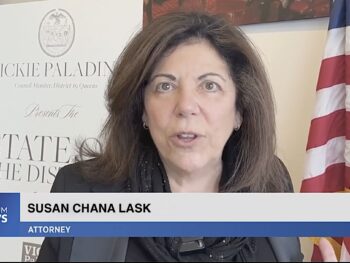
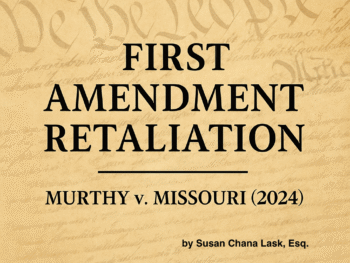
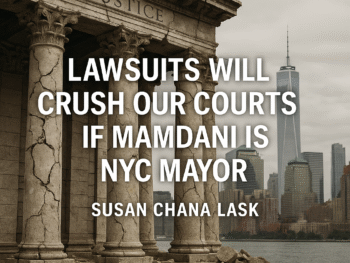
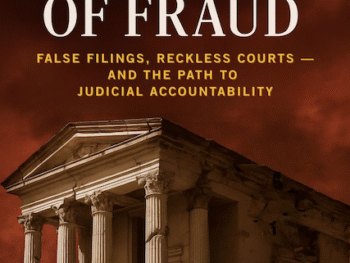
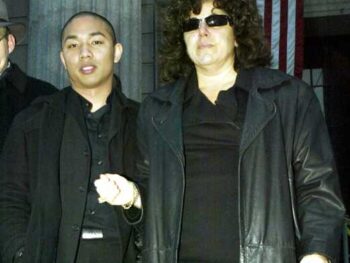




 CNN: Democratic Congress Supports Lask’s Employment Discriminations Case
CNN: Democratic Congress Supports Lask’s Employment Discriminations Case